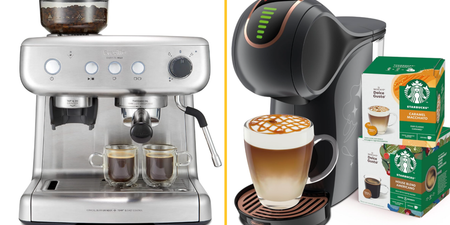Last week, you may have seen the media awash with the claim that ‘energy drinks can cause heart attacks’
Reading such a headline may have compelled you to dial 999 right way – but you needn’t cut out caffeine.
Let’s be clear. The study actually made two claims:
- The combination of ingredients can pose a risk: these are caffeine, taurine, sugar and a variety of herbal ingredients
- People with pre-existing heart problems are mainly at risk
When taken alone, there’s little evidence that these ingredients harm your health. Where caffeine is concerned, the science stands in favour of a good brew.
Recent research shows that coffee itself is highly ‘neuroprotective’ – good for your brain, in other words.
Drinking brewed coffee can fend off the formation of amyloid-beta proteins. These proteins are associated with conditions such as Alzheimer’s and Parkinson’s disease.
The benefits don’t end there, though. Coffee’s brain-protecting properties go beyond disease prevention.
Caffeine reduces your rate of perceived exertion – how difficult you perceive an exercise to be. This means that a heavy set of squats or bench press can be made easier by drinking some coffee before hitting the gym.
If endurance sports are your cup of tea (or coffee, in this case), then the science also makes for good reading. In one study, caffeine improved the performance of cyclists who were experiencing fatigue.
How much caffeine is healthy? Research on the topic shows at least three milligrams per kilo of bodyweight is optimal.
If you weigh 80 kilos, that’s around 240 milligrams of caffeine. This is the amount you’ll find in most medium-sized Americano coffees.
Now if you excuse me – it’s time to put the kettle on.
Read more:
- The 5 best ways to warm up before a workout
- Why flexible dieting and IIFYM are overrated
- Build bigger forearms with these 3 exercises










































